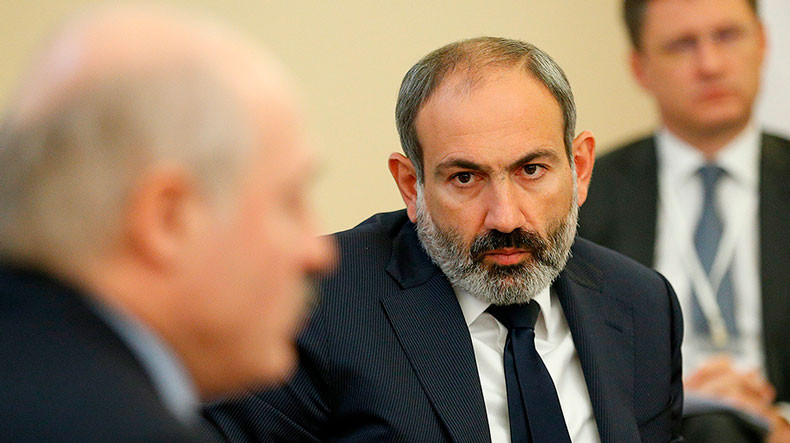
Political analyst draws parallels between Pashinyan's, Lukashenko's methods to struggle against opposition
Armenian Prime Minister Nikol Pashinyan can rely on own patience only in the struggle against opposition, the head of "Kassad" information-analytical center, publicist Boris Rozhin tells an interview to Riafan media outlet.
The political analyst reflects on the ongoing protests in Armenia and the opposition's tactics of blocking major streets and highways to urge Pashinyan to step down for signing what they call 'a disgraceful statement' which ended the war in Karabakh war. The opposition has suggested Vazgen Manukyan's candidacy as an alternative for the post of Armenia's prime minister for an interim period.
"The nationwide strikes of Armenian enterprises started on December 16, the operation of some of those enterprises have fully stopped, while their employees participate in the opposition rallies in downtown Yerevan. We are witnessing a situation similar to the one which brought Pashinyan to power in 2018, when his predecessor Serzh Sargsyan resigned," Rozhin notes.
"Reports about Pashinyan's upcoming resignation are not verified at the official level. Pashinyan is not going to transfer his power to any conditional Vazgen Manukyan. In general, the country needs snap elections to overcome the ongoing political crisis, however, I am sure the Armenian prime minister is far from the idea of holding snap elections either," Rozhin stresses, adding Pashinyan's tactic is to wait until the protests are weakened and the tense situation calms down itself.
"This path is clear to all. Alexandr Lukashenko acted in a similar way and as it appears he had some success in his tactics. Emanuel Macron was another leader who overcame the crisis with the Yellow Jacket movement. Thus, the Armenian prime minister has several successful examples of fighting the opposition. Moreover, his opponents struggle to make the vast majority of the population take to the streets. Furthermore, there are serious demands toward the leader of opposition," says the political analyst, pointing to the 'unpleasant dilemma' the Armenian people face to choose between Pashinyan from one hand and the opposition from the other.
"Nevertheless, a decision should be made, as the longer the ongoing crisis continues, the more serious consequences will arise for the country. The political structure of Armenia may not simply hold up under the strain and pressure," Rozhin concludes.
Newsfeed
Videos






























